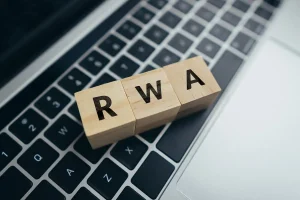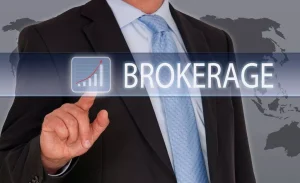When a financial market participant transacts in securities, several activities take place in the back office. Traders have probably bought and sold securities in minutes, but much work needs to be done before, during, and after the trade. Among these activities, we highlight the official execution of the operation and its documentation in “books” for the correct display of data about the new owner of the securities. Let’s look at this kind of activity and the primary features of the self clearing broker dealer.
What Is a Clearing Firm?
A clearing firm is an economic establishment that settles commercial agreements. It monitors the deals and keeps track of all the calculations to clean them up. The organization ensures a meeting between the asset’s owner and the purchaser and handles economic and lawful risks until the end of the operation.
All calculations end after the money arrives from one account to another. This process takes up to 48 hours and is called T+2 (when the agreement is concluded + two more days). With margin accounts, clients can increase contract volumes before settlement is completed, as capital is borrowed and returned upon closing. Most IBs outsource these responsibilities to CBD, which is willing to handle the settlements for a fee. These back-office functions may be too expensive and complex when discussing smaller intermediaries if they decide to do them themselves.
If you prefer short selling, then clearing companies are necessary to borrow them. Only such market participants have more short reserves of shares. Active traders are accustomed to having their intermediaries contact various clearing firms to find them securities to sell. Although the procedure occurs electronically, difficult-to-borrow securities may require more working hours and effort. Clearing organizations finance and move securities between parties to a transaction.
Several types of broker dealers with clearing functions include general clearing participants, executing brokers, and self-clearing brokers.


Turnkey Brokerage Solution For Your Business
Get the most profitable fully licensed fx/crypto brokerage software or ready-to-operate business in 48 hours. Best-in-class web & mobile trading platforms, sales-driven CRM, full integration with MT4/5, and 150+ payment providers.
Comparing Clearing Firms vs. Brokers
If an introducing broker-dealer (IBD) plans to get the status of a clearing broker-dealer (CBD), some attributes must be remembered. IBD processes customer orders to purchase or sell assets. At the same time, they must maintain a relationship with the CBD, also called the clearing organization, which fulfills the orders and is responsible for the storage of the user’s assets.
In most situations, IBD is more client-focused and works as a middleman for individuals and businesses seeking exposure to the efficient counterparty CBD sector. With such collaboration, IBD can form a simplified business structure. It profits most from commissions and discounts on operations concluded with attracted counterparties. It also reduces their responsibility regarding customer reporting and recording obligations since the clearing firm provides these activities.
We note that in some situations, the responsibilities of IBD and CBD may be similar, as clearing brokerage firms manage purchase and sale orders and hold stocks and other customer assets. However, given the scale and the categories of securities involved, they have more cumbersome back office functionality that can require much time and effort. Participants described above perform some unique jobs:
- clearing transactions,
- transaction confirmation,
- compliance with calculation and reporting standards,
- execution of the transaction,
- safekeeping of capital and securities belonging to counterparties.
Current reporting standards for brokers and clearing organizations are also similar. However, document creation is more high-priced due to the more complex nature of the CBD performance. The time needed to fill in the data internally and externally also increases. All financial statements must be submitted within two months following the conclusion of the financial year.
As we see, brokers and clearing organizations actively interact, performing all commercial operations from the moment the purchase and sale transaction starts.

Understanding Self-Clearing Brokerage Dealers
Some specialists with brokerage licenses in the sector have the potential to provide clearing procedures. This type of broker actively handles settlements for various operations and functions as a clearing house, hence the name “self clearing brokerage.” With unique systems, they perform all operations without other participants, considerably decreasing the expenditures arising when interacting with them.
In terms of subordination, this group of agents is a vertically integrated institution with all the innovative apps to ensure financial activity in the back office. CBDs track various procedures in the industry:
- Provide easy access to the area.
- Tasked with commercial activities.
- Perform all calculation procedures.
- They offer clearing broker dealer operations.
Such an environment provides CBD with many benefits in terms of comfort and speed. Simultaneously, customers receive an optimal commercial experience. Now, they can independently monitor and adjust various procedures.
Self-clearing organizations are the backbone of the stock and bond sectors. Their knowledge and skills ensure the effective closing of operations and the system’s transparent performance. Such experts process orders to purchase and sell stocks and bonds and offer assistance in building a portfolio, including custody of customers’ assets (e.g., cash flow control). Because these agents are responsible for collecting the assets of customers, CBDs tend to maintain more strict money requirements than an introducing broker (IB). They provide the efficient allocation of capital and other assets that are in custody.
If a firm implements a self-clearing scheme, this creates additional controls and risks that must be considered when performing an annual audit. Brokers must implement a professional back-office system with all the necessary functionality to offer self-clearing services. Using control tools to protect the most significant sectors of the back-office system is also essential, which creates additional costs. An intermediary company needs to analyze the pros and cons to understand whether it is worth moving to self-clearing or whether it is better to outsource such an activity.
Benefits of a Self Clearing Broker
As discussed, a self clearing broker dealer conducts diverse business operations within its capacity. This provides such intermediaries with several benefits unavailable to brokers who do not collaborate with a similar system. Let us describe the main aspects in more detail.
- Efficiency. If a broker prefers outsourced clearing operations, some activities may not be in the best interests of the brokers and clearing organizations. It can negatively affect the activities of brokers and reduce their earnings from operations. Implementing a personal clearing structure allows you to track all procedures and adjust various indicators, including capital movements, margin standards, etc.
- Monitoring. When clearing occurs internally, the broker can monitor any settlements under the agreement. Choosing a vertical business model provides CBD with complete control. They do not need to communicate with intermediaries to find and eliminate errors or consult with other interested parties. Although inaccuracies in commercial calculations occur infrequently with advanced software, it is useful to realize that any issue can be solved quickly and effectively. By choosing such a counterparty, customers can prevent collaborating with many agents; each is accountable for their purchases. Many trades provide more clearing with constant cooperation between clients and the back office. It raises the worth of agents cooperating with a selected client category, e.g., active participants.
- Short sale. The significance of CBDs in short selling and short trading cannot be overstated. If market participants utilize borrowed funds to provide short selling, they borrow capital from the clearing service provider. It is an efficient algorithm because such a firm has many share certificates, making it easy to process operations. When collaborating with securities that are difficult to borrow, the clearing company’s specialists interact with several financial institutions and agree to borrow more shares. Such groups have many reliable counterparties in the area, so they can benefit participants who prefer short-selling.
Given the robust clearing offerings, CBDs are crucial in executing securities transactions. Such industry participants boast significant capital, which ensures optimal service in terms of self-regulatory organizations.
Conclusion
Clearing firms handle most financial operations and are an integral to popular exchanges. Most brokerage deals end up in a clearing organization, whether external or internal, if we are talking about self clearing broker dealers. While we often overlook the activities of clearing businesses, it is important to understand their role. Such participants reduce overall market risks, influence the speed at which trades are cleared, enable short selling, and determine the commissions that traders pay to their brokers.






